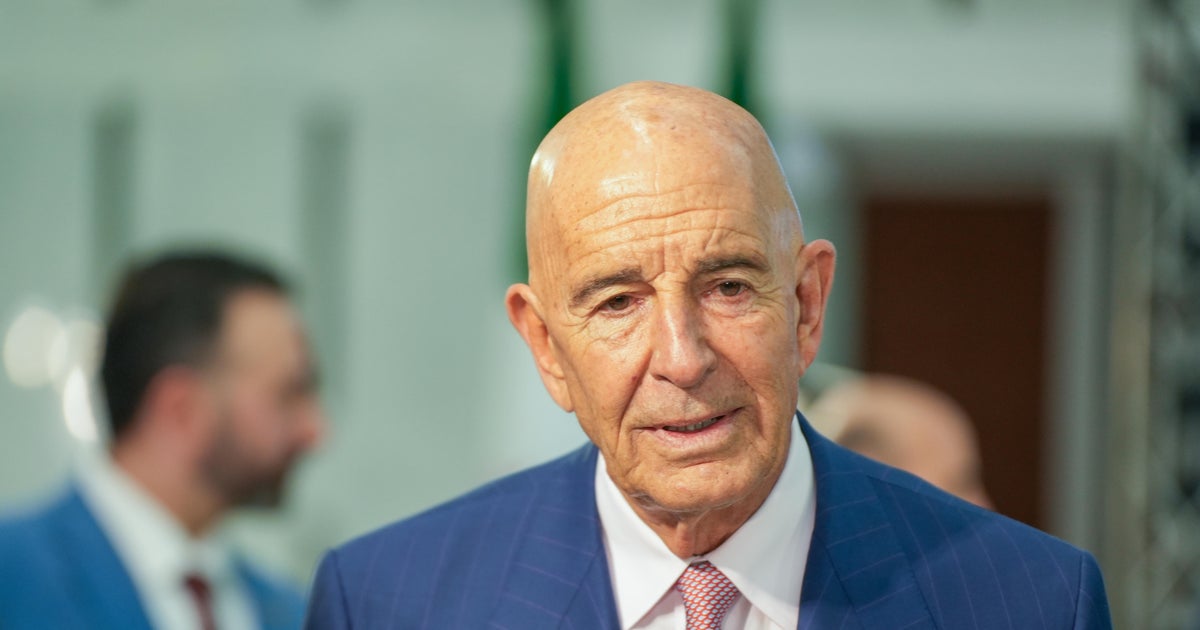Secretary of State Blinken appoints two diplomats to lead "Havana Syndrome" response
Secretary of State Antony Blinken announced on Friday the appointment of two senior officials to oversee the State Department's response to incidents of "Havana Syndrome" among its employees. Their appointment comes as American diplomats and intelligence officers around the world continue to report symptoms of the mysterious neurological affliction.
Career foreign service officer Jonathan Moore, who served in posts in Bosnia and Namibia, will lead the Department's internal Health Incident Response Task Force. Ambassador Margaret Uyehara, who has spent more than three decades in the Foreign Service, will serve as senior care coordinator.
Blinken also said the State Department was using "new technology" to more "quickly and thoroughly evaluate a variety of potential causes of these incidents." He did not elaborate on where it had been deployed.
"This is an urgent priority for President Biden, for me, for our entire government," Blinken said, in his first extensive public remarks on the matter. "We will do absolutely everything we can, leaving no stone unturned, to stop these occurrences as swiftly as possible."
Blinken said he had heard directly from American diplomats, some of whom had experienced "serious physical consequences" and psychological harm including trauma, anxiety and depression. He said the Department had begun a partnership with Johns Hopkins University to ensure employees and their family members had access to medical care.
"We look forward to continuing to work with the State Department's Health Incident Response Task Force, and with Ambassador Moore and Ambassador Uyehara, as part of the National Security Council-led government-wide effort to investigate the cause of these anomalous health incidents and do everything we can to ensure the safety and security of Americans serving around the world," a spokesperson for the National Security Council said.
The State Department has also introduced assessment tools that collect baseline neurological and other data from employees ahead of their overseas deployments, Blinken said.
There have been more than 200 suspected cases of "Havana Syndrome" reported since 2016, when U.S. diplomats and intelligence officers first fell ill at the U.S. embassy in Havana, Cuba. Symptoms can include dizziness, nausea, intense headaches and blurred vision, and some officers have been diagnosed with Traumatic Brain Injury.
In recent weeks, suspected cases have been reported with alarming proximity to senior administration officials while they traveled overseas. In August, Vice President Kamala Harris temporarily delayed a trip to Hanoi, Vietnam after an embassy official fell ill there, and in September a top aide to CIA Director William Burns sought emergency medical care after experiencing symptoms in Delhi, India.
Cases have also been reported in Austria, Germany, Colombia, Uzbekistan and other countries across multiple continents.
The U.S. intelligence community has not reached any firm conclusion as to the cause of the incidents. A 2020 report commissioned by the State Department from the National Academies of Sciences said the most plausible explanation for the symptoms was "directed, pulsed, radiofrequency energy." Some current and former officials believe a foreign government – or several – may be using directed energy technologies that have damaging neurological effects to collect intelligence.
In remarks at the Aspen Security Forum this week, House Intelligence Committee chairman Adam Schiff said the intelligence community was "marginally closer" to determining the cause of the incidents, but that progress had been slow.
"I don't feel that I can express a lot more optimism than that. I think we're making progress, but it has been very slow and much slower than, certainly, I think any of us would like to see," Schiff said. "I still personally have profound questions about what is causing this, and whether it is one cause, or several. And so we still, I believe, have a lot of work ahead of us."
The officials' appointment comes several weeks after the departure of Ambassador Pamela Spratlen, who oversaw the State Department's handling of the incidents for six months. Some victims' groups were critical of what they said was an unduly skeptical stance taken by Spratlen and other senior officials of their experiences.
"I'm looking to both of them to keep me and our senior leadership team fully informed of progress, including on areas where we can do more," Blinken said Friday of Moore and Uyehara.
Last month a bipartisan group of senators pressed Blinken to demonstrate "heightened engagement" on the Department's handling of the incidents, which they described as an "unmitigated threat to our national security."
In their letter, the senators asked Blinken to immediately nominate a successor to Spratlen, and to prioritize the implementation of the Havana Act, legislation passed unanimously by Congress that is designed to boost support for victims who have suffered brain injuries. It was signed into law by President Biden in September.
"I welcome Secretary Blinken's announcement, which is a positive step forward for U.S. personnel and their family members who for years have suffered from serious health effects due to directed energy attacks," said Democratic Senator Jeanne Shaheen of New Hampshire. "While we cannot necessarily see their injuries, they are real and deserve the same attention and urgency as wounds that are visible."




